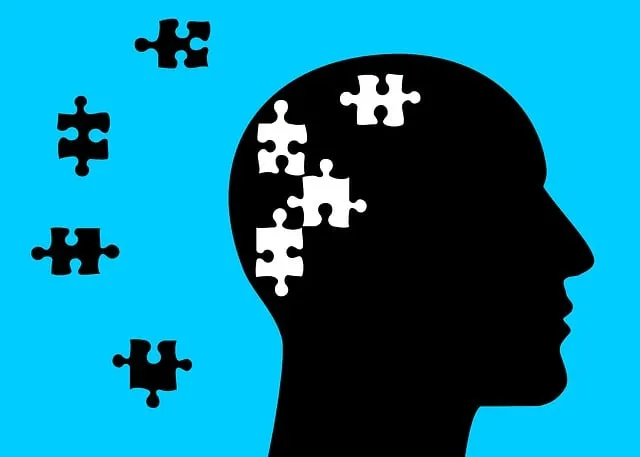Englewood Kaiser Permanente's comprehensive mental health coverage emphasizes Englewood Kaiser Permanente mental health coverage as a powerful tool for managing and improving mental well-being. Through specialized services, including social skills training, risk management planning, and stress management workshops, they equip individuals with essential tools for navigating social interactions, resolving conflicts peacefully, and fostering healthier relationships. This personalized approach tailors strategies for various conditions, offering group therapy, CBT workshops, and compassion cultivation practices to enhance social connectivity, self-confidence, and overall mental health. Success is measured through multifaceted assessments tracking progress over time, demonstrating the long-term sustainability of acquired skills.
Social skills training is a powerful tool in managing mental health conditions, fostering community engagement, and enhancing overall well-being. This comprehensive guide explores the significance of such programs, with a specific focus on the role of Englewood Kaiser Permanente mental health coverage in making these interventions accessible. We’ll delve into effective strategies, implementation methods, and measurement techniques, highlighting best practices for healthcare providers and advocates aiming to improve outcomes for individuals navigating mental health challenges.
- Understanding the Importance of Social Skills Training for Mental Health Conditions
- The Role of Englewood Kaiser Permanente Mental Health Coverage in Funding Such Programs
- Identifying Appropriate Strategies for Effective Social Skills Training
- Implementation and Delivery Methods for Social Skills Training Programs
- Measuring Success and Long-Term Impact of Social Skills Training for Mental Health Conditions
Understanding the Importance of Social Skills Training for Mental Health Conditions

Social Skills Training plays a pivotal role in managing and improving mental health conditions. For individuals under Englewood Kaiser Permanente mental health coverage, this training becomes even more crucial as it equips them with essential tools to navigate social interactions successfully. Mental health conditions can often isolate people, making everyday conversations and group settings challenging. Therefore, learning effective communication strategies is vital. These strategies enable individuals to express their feelings, needs, and thoughts clearly while fostering healthier relationships.
Moreover, training in conflict resolution techniques is invaluable. Many mental health conditions come with heightened anxiety or difficulty managing emotions, which can escalate simple disagreements into overwhelming situations. Learning how to de-escalate conflicts and resolve issues peacefully empowers individuals to handle social pressures more effectively. Additionally, Risk Management Planning for Mental Health Professionals is a key aspect of comprehensive training. It ensures that both practitioners and their clients are prepared to manage crises, enhancing safety and stability in various settings, from therapeutic environments to community spaces.
The Role of Englewood Kaiser Permanente Mental Health Coverage in Funding Such Programs

Englewood Kaiser Permanente mental health coverage plays a pivotal role in funding and supporting social skills training programs designed to aid individuals with various mental health conditions. This comprehensive coverage recognizes the interconnectedness between social competencies and psychological well-being, prioritizing holistic care. By offering financial backing for such initiatives, Englewood Kaiser Permanente enables access to specialized services that foster resilience building and effective stress management workshops organization.
The funding allocated by this Mental Health Coverage extends beyond immediate treatment, focusing on preventive measures and long-term support. This includes the implementation of risk assessment for mental health professionals, ensuring practitioners are equipped to navigate complex client needs. Through these funded programs, individuals with mental health conditions gain valuable tools to enhance their social interactions, thereby improving overall mental health outcomes.
Identifying Appropriate Strategies for Effective Social Skills Training

Identifying Appropriate Strategies for Effective Social Skills Training involves understanding the unique needs and challenges associated with various mental health conditions. At Englewood Kaiser Permanente, our comprehensive mental health coverage recognizes the importance of addressing social skills as a key component of overall well-being. We tailor strategies to suit different disorders, focusing on what works best for each individual. For instance, Empathy Building Strategies can significantly enhance relationships by fostering understanding and connection, which is crucial for those with anxiety or depression. Similarly, Mindfulness Meditation techniques have been proven effective in improving social interactions by promoting calmness and emotional regulation, benefiting individuals dealing with mood disorders.
Additionally, teaching Mood Management skills is integral to successful social skills training. This involves learning to recognize and control emotional responses, which can help reduce social anxieties and improve communication. By combining these approaches, Englewood Kaiser Permanente ensures that our programs are not just comprehensive but also personalized, catering to the diverse needs of our patients under our mental health coverage.
Implementation and Delivery Methods for Social Skills Training Programs

Social Skills Training Programs can be implemented through various methods tailored to different needs and preferences. One effective approach is group therapy sessions, where individuals with shared mental health conditions, such as those covered under Englewood Kaiser Permanente mental health coverage, can learn and practice social skills in a supportive environment. Facilitated by trained professionals, these groups foster open communication, empathy, and understanding among peers, enhancing social connectivity and self-confidence.
Another popular method is cognitive-behavioral therapy (CBT) workshops, which focus on identifying and modifying negative thought patterns that may hinder social interactions. Engaging activities, role-playing scenarios, and mindfulness exercises are integral components of these programs. Compassion Cultivation Practices, a growing area of interest in mental health awareness, can also be incorporated to foster empathic connections and reduce social anxiety. These delivery methods offer flexible options, ensuring individuals receive the support needed to navigate social situations with greater ease and confidence.
Measuring Success and Long-Term Impact of Social Skills Training for Mental Health Conditions

Measuring success and assessing the long-term impact of social skills training is essential to understanding its effectiveness in improving mental health outcomes. This process involves a combination of quantitative and qualitative methods tailored to each individual’s needs. For instance, at Englewood Kaiser Permanente, mental health coverage includes access to specialized therapists who can track progress through structured assessments, surveys, and interviews. These tools help gauge improvements in social interaction, communication, and emotional regulation skills over time.
Long-term impact assessments often involve following participants’ journeys beyond the training period. This could include tracking their ability to maintain new friendships, manage conflicts using learned techniques (like Conflict Resolution Techniques), navigate social settings, and generally enhance their mental wellness. Such evaluations are crucial in demonstrating the sustainability of acquired skills and the overall positive effects on mental illness stigma reduction efforts, as recognized by Englewood Kaiser Permanente’s commitment to holistic patient care.
Social skills training is a powerful tool in enhancing the lives of individuals with mental health conditions. As discussed, engaging programs tailored to specific needs can significantly improve social interactions and overall well-being. With support from initiatives like Englewood Kaiser Permanente mental health coverage, access to these transformative programs becomes more feasible. By combining effective strategies, innovative delivery methods, and thorough evaluation, we can ensure that those seeking help receive the best possible care, fostering a more inclusive society for all.






